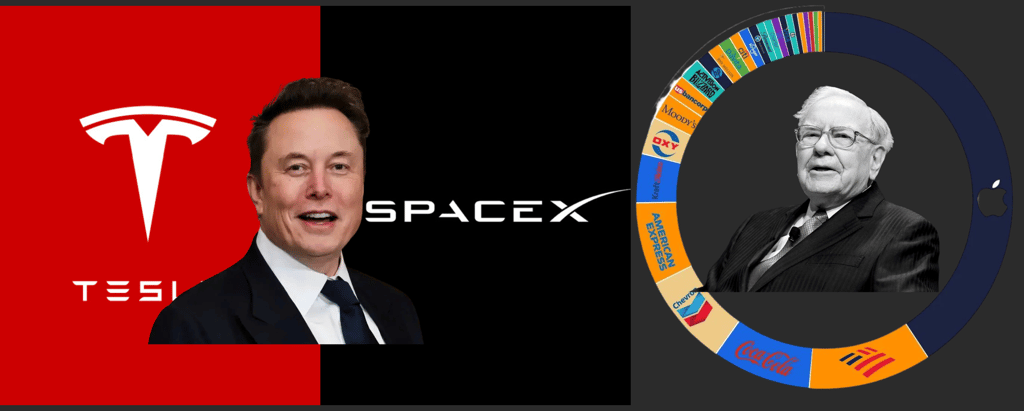Billionaires Lose Money Too – So Why Don’t They Panic?


Losses in trading and investing are common, whether you’re a beginner or a billionaire. So, what’s the real cause behind financial setbacks? And why do billionaires stay unfazed even after losing billions?
Let’s uncover the psychology behind losses and how you can turn setbacks into stepping stones for success!
Why Do Most Traders Lose?
Many traders face similar struggles when starting their journey. Most begin with a demo account, which often reflects their instincts in the markets, leading to seemingly easy profits. However, once they switch to a real account, the dynamics change dramatically. Despite using the same strategy, broker, leverage, and margin, a significant percentage of retail traders—ranging from 70 to 90 percent—end up losing money over time.
This is when trading becomes a true challenge, leading many to question whether they are suited for investing or trading.
At this point, you might be wondering—how does the author know this? The answer is experience. Having been in the same position, years of research and practical application have led to key insights that can help traders navigate these challenges.
Psychology: The Key to Trading Success
Research indicates that psychology plays a crucial role in trading outcomes. One of the main reasons traders fail is the desire for quick profits, which leads to impulsive decision-making and poor money management.
However, trading psychology is influenced by various factors, including geographical and economic backgrounds.
Developed economies such as the United States, United Kingdom, and Australia have a long history of private-sector-driven growth. This has led to higher financial literacy and structured investing habits. In contrast, developing nations across Asia, Africa, and Latin America are still improving financial education, though their presence in global markets is growing rapidly.
The environment in which a trader operates also plays a significant role. Individuals influenced by a gambling culture may approach trading with the same mindset, seeking quick gains without a clear strategy. On the other hand, those surrounded by financially disciplined individuals are more likely to take a calculated, research-driven approach. Social media can also shape trading behavior, as exposure to “get rich quick” content can lead to reckless decision-making.
The solution lies in continuous education, thorough research, and developing a strong risk management plan to mitigate unnecessary losses.
How to Minimize Trading Losses
Once again, psychology plays a key role in risk management.
Consider this scenario: A 10 percent loss on a $2 million trading account amounts to $200,000, whereas a 10 percent loss on a $2,000 account results in a loss of only $200.
If given $2 million to trade, most individuals would be extremely cautious with their decisions. However, with a smaller sum like $2,000, many traders take excessive risks without proper risk assessment.
The key takeaway is only to invest what one is prepared to lose. The primary goal should be wealth preservation rather than merely chasing profits. A shift in mindset enables traders to stay emotionally detached and focused on long-term success.
Financial setbacks should not be seen as failures but as part of the learning process. Just as losses occur in other aspects of life—relationships, opportunities, and emotions—financial losses are no different. The only distinction is the emotional impact associated with money.
Billionaires Face Losses Too
Every billionaire has faced significant financial losses, yet they do not allow setbacks to define their long-term success. Elon Musk experienced the largest loss of personal fortune in history, as confirmed by Guinness World Records. Between 2021 and 2023, his net worth declined by nearly $200 billion due to a sharp drop in Tesla’s stock price. However, he has since recovered a significant portion of his wealth and remains one of the richest individuals globally.
Warren Buffett has also faced major financial setbacks. During the 2008 financial crisis, his company, Berkshire Hathaway, lost $11 billion due to the stock market collapse. In 2019, he invested $10 billion in Occidental Petroleum’s acquisition of Anadarko, a deal that later faced criticism. In 2020, the COVID-19 pandemic severely impacted the airline industry, prompting Buffett to sell all his airline holdings, including Delta, United, Southwest, and American Airlines, reportedly resulting in losses of $7 to 8 billion.
Despite these setbacks, these investors continued forward, adapting to changing market conditions. The key lesson from their experiences is that financial losses are not the end but rather an opportunity to reassess strategies and make informed decisions for future success.


